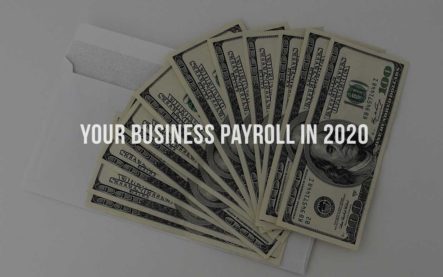CALL US
(980) 237-1714
Email us
justin@pruscpa.com
Friday 09:00 - 15:00
Mon - Thu 09:00-17:00
Let’s talk about Basis!
Estimated Reading Time: 3 minutes 25 seconds
“Basis” is a loaded word for accountants. It is very much described in the same regards as “time”, in that there never seems to be enough time when it is needed most.
For many S-corp shareholders, basis is starting to come into play at tax time and many are unprepared for that complication when they are trying to get their taxes wrapped up.
Basis and Personal Tax Return Filings
The IRS is now requiring basis to be included with personal tax return filings, which is adding to the ever-growing list of new data they require each year. The day is coming when the IRS will simply be able to send a letter (THEY NEVER CALL FIRST!!!) to Tom Taxpayer asking them (Tom) to provide the details of their basis calculations for their 20XX tax returns. Hopefully, Tom didn’t use Turbotax or a large tax prep chain to “help” him determine his basis; if he did, then he will likely have a hard time extracting that information in a meaningful way.
Basis – the definition
To understand the basis, the business owner needs to take a deep dive into the US Tax code to figure out what the heck the word “basis” even means. In most cases, the basis is not the cash in the bank, the value of the business, or some other tangible number on the financials.
Particularly with pass-through entities, like S-corps, there are also complex rules about the different elements that comprise basis, and many of them are not intuitive or reasonable. An accurate basis calculation is very important, however; and having an incorrect basis calculation can be a costly mistake.
How does Basis work?
If a business had a $75,000 profit and the business owner took out $70,000 during the year in distributions, then that would leave a $5,000 basis to carry into the next year.
However, if the business owner took a loan during the year and spent more than was earned, what happens? What about when a large purchase is financed and creates a tax loss? What are the specific rules about real estate basis calculations? Turbo Tax, H&R Block, or any of the other tax prep chains will have a tough time answering those questions; “it’s complicated” is probably the most accurate answer and the best they can do.
GP CPA is experienced when it comes to basis calculations.
The CPA’s and accountants at GP CPA have years of experience with basis calculations and can explain how it works for your business in a straightforward way that will help you prepare for the future.
Simply tracking basis is not enough for today’s tax code challenges and the first quarter of the year is not the time to get interested in learning about last year’s basis. Get the right information all year long with GP CPA, contact us now to get a handle on basis.
Related Articles

Moving at the speed of business
GP CPA has relied on cloud-based accounting technology for many years now and devotes a significant amount of time toward testing and learning the latest and greatest systems out there.

Your Business Payroll in 2020
Take control back from the big box payroll companies and work with someone who can guide you to a better payroll process. GP CPA + GUSTO is the modern way payroll runs and the partnership that moves your business forward.

Dear Client, I have good news!
Since we now have less than 90 days left in the year, kindly keep me apprised of when you expect the major revenue collections to be during the next few weeks and we can adjust accordingly.
Meet Michael R. Acosta, CFP® (Certified Financial Planner)
A CFP® is a Certified Financial Planner professional that focuses on taking a holistic approach to goals-based planning.
Q&4 – The all important Q4 is almost upon us…
While it may not feel like Fall is anywhere close by, the date tells us that we have barely 100 days left in the year.
IRS has begun sending letters to virtual currency owners advising them to pay back taxes, file amended returns; part of agency’s larger efforts
IRS has begun sending letters to taxpayers with virtual currency transactions that potentially failed to report income and pay the resulting tax from virtual currency transactions.
Comments

0 Comments